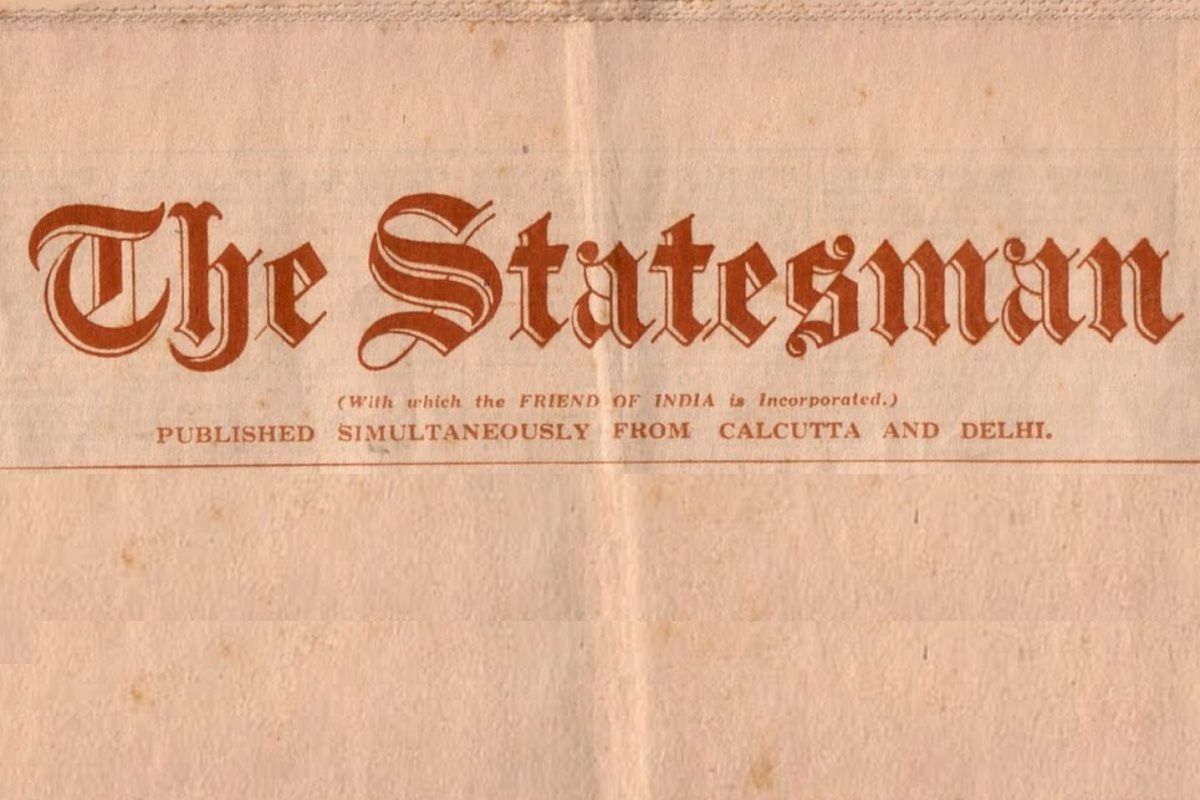A New Day, A New Dawn
There is a surprise for the readers. A special Poila Boishakh gift from none other than West Bengal chief minister Mamata Banerjee. Who has written a piece for this special edition.
On this day a century ago, these were some of the news items The Statesman readers got to read about India and the world.

OCCASIONAL NOTE
There is a ring of superb confidence in the speech delivered to the Bombay Legislative Council by the new Governor of that Presidency in putting the peace resolution to the members. Sir George Lloyd looks forward “with unwavering confidence to the task that lies before us,” and aspires, on behalf of his Government, to “show to the people of this Presidency those three, as I think, the greatest qualities of Government, namely, firmness, energy and generous sympathy with the aspirations of the people.” Nothing could be better, and His Excellency will carry with him the best wishes of India as he addresses himself to his task. Coming more particularly to the reforms Sir George Lloyd, who is an ardent reformer, confided to his Council none the less that he is no believer in forced marches, because “a regiment that tries to move with forced marches becomes a rabble.” At the same time the Governor of Bombay is clearly of opinion that there ought to be no delay in starting out, because “the sooner we come to grips with the problem the more certain we shall be of our success.” There speaks, if one may gently hint it, the exuberance of the reformer who is still, in Anglo-Indian parlance, a “griffin.” Possibly, before Sir George lays down his high office he may be disposed to admit that the exact moment of setting out upon a march is of less importance than a knowledge of the route and a clear notion of where one is going.
RIVAL LOVERS
Advertisement
A fatal stabbing affray took place at Singhee Bagan, Jorasanko, when a Mahomedan youth named Chotoo, is said to have stabbed to death, another Mahomedn youth, named Abdul, and also caused serious injuries with the same knife to a woman named Kamini, with whom both had fallen in love. It appears that the deceased and the accused had been for some time past paying attention to the woman Kamini, and the crisis came when Kamini had to pick between the two. Abdul was the favoured one, but in spite of this Chotoo did not drop his visits, and on Wednesday night an altercation took place between the rivals. It is stated that Chotoo left in anger, returning with a huge knife, with which he put to death his rival and also inflicted serious wounds on the woman. Sergeant Valis, who happened to be passing by at the time, arrested the accused with the weapons in his hand. The injured persons were removed to the Medial College Hospital, but Abdul died shortly after admission.
FEROZABAD RAILWAY ACCIDENT
SIMLA, JULY 10
The committee which enquired into the cause of the accident on the 19th June, when 7 Up passenger and 126 down goods collided between Ferozabad and Makhanpur stations on the East Indian Railway, found that the accident was caused by the driver of the goods train (who was killed) leaving Ferozabad for Makhanpur with a line clear authority which did not apply to the FerozabadMakhanpur section and which he failed to examine before starting. The members of the station staff through whose negligence the wrong line clear authority reached the driver will be prosecuted.
LABOUR CONDITIONS IN MALAYA
The Planters’ Association of the Federated Malay States, on the recommendation of the standing committee, has passed a unanimous resolution asking Mr. C.F. Andrews to proceed to Malaya as soon as possible in order to make, on behalf of the Planters’ Association and for their benefit, an exhaustive report on the conditions under which labourers live with a special view to reporting on the feasibility of colonisation as compared with sporadic emigration. Mr. C.F. Andrews hopes to be able to go out to the Malay Peninsula when other duties allow. He has sent to the Planters’ Association certain suggestions, which he has also submitted to the Madras Government, with regard to; better accommodation, especially for women on board the emigrant ships; better housing arrangements for the Tamil families; the provision of medical aid for Indian women in hospitals.
SEX WAR OVER WAGES
At a meeting in mail week of the Statistical Society it was shown that in many cases women’s wages have increased to three times the rate of pay in pre-war times. Labour is sorely divided over this wages question, and while one trade union section continues to demand equal pay for equal work others contend hotly that women are already being paid too much, while a third section is content to declare that by reason of women’s physical disabilities continued work is impossible and that therefore there is no need to worry.
Advertisement